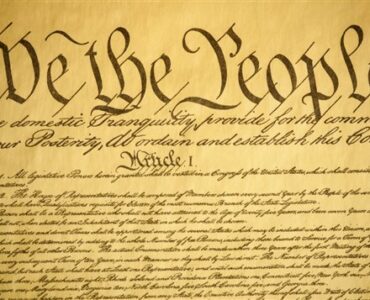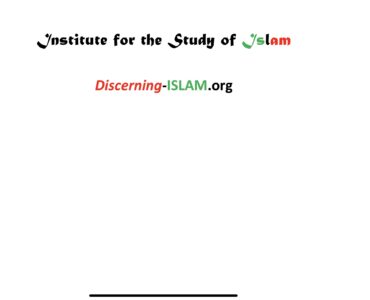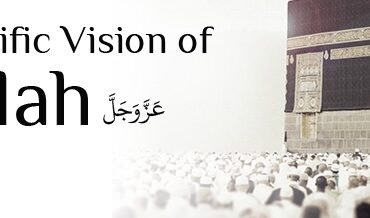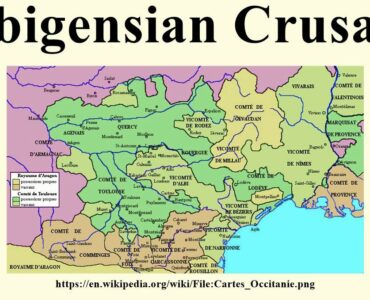PART II: Some Biblical Issues
The Christian church has never found it easy to come to come to terms with the marketplace. There have always been those who regarded private property, interest and profit, somewhere between questionable. at best, and at worst, immoral and wicked. Early church fathers criticized anyone who did not take the words of Christ literally to sell his possessions and give to the poor.
Even contemporary churchmen, in sermons, speeches, writings and conference resolutions, give the overwhelming impression they share a deep hostility when it comes to the pursuit of profit, the market economy, privately owned property, and that most characteristic institution of modern capitalism — the privately owned corporation.
Examples of this range from E. F. Schumacher’s book, Small Is Beautiful, to the famous encyclical letter, Popolorum Progressio (The Great Social Problem). by Pope Paul VI. Other examples include Pius XI’s denouncing of “the international imperialism of money,“ and the work of Protestant theologian, Miguel Bonino front Argentina, who stated, “the basic ethos of capitalism is definitely anti Christian … “
The general theme of these writers is clear: a market economy dependent upon the institution of private property, together with a system of competitive markets, promotes profit as the criterion for survival. This may encourage freedom of individual choice, but it results in a competitive, greedy, unequal and materialistic society which runs totally counter to the teachings of Jesus on these subjects. These writers further contend that materialism, exploitation and injustice are built into the very framework of the marketplace. Therefore, the Christian who wishes to be true to his faith has no alternative but to reject the whole system; the businessman is placed in an intolerable position by the implication that he is either corrupt or naive. But are they correct?
If we examine the theological dimension what do we find Does the gaining of wealth enter into the message of the Gospels? From a Christian perspective, the process of creating wealth is a positive pursuit. In such a pursuit, the market economy offers a far better starting point than other economic systems. Moreover, it provides enormous opportunities for Christians in business to create work structures that are authentically Christian But, can it be rescued from a secular humanist philosophy?
The free enterprise system is one of the best opportunities to practice stewardship and caring for others. Through providing products, services, finances and actions there are countless opportunities to support and improve the future of individuals, families, communities, and the church and missions. The free enterprise system offers not only the best but perhaps the only chance for dignity, and for the survival of Christian outreach as well.
The free enterprise system is also the basis of employment in and the opportunity to grow and prosper as an employee. Perhaps the truth most overlooked by those critics of business is the essential and interdependent roles of employer and employee and the mutual advantage of shared success.
Our world is made up of various philosophies — even “philosophies within philosophies” (e.g., Christian: conservative, liberal, fundamental, etc.). Like it or not, all of us must work, live, and interact with each other. No one person has the entire answer to the world’s problems, though each of us may have a portion of the truth.
Whatever position we take along the spectrum, the primary issue is ethics. We need a mutually accepted standard — the Bible (biblical law in both Testaments) — to provide the basis for our ethics. Some Christian liberals however tend to be uncomfortable with Old Testament law, deeming it unacceptable as a governing system for New Testament times. (Relatively few Christian social theorists seem willing to admit that the New Testament is primarily a commentary on the Old Testament.) But should we limit God’s revelation to the New Testament when He is the author of all the Scripture? “For everything that was written in the past was written to teach us, so that through endurance and the encouragement of the Scriptures we might have hope” (Rom. 15:4). We have no right to expect God to write His principles of love and honor. on our hearts, while at the same time we refuse or fail to study the Scriptures He has given us.
We are to be holy, for God is holy (see Lev. 11:44; 1 Pet. 1:15-16). According to the Bible, it is oppressors who are responsible for the condition of the oppressed, and they are not necessarily the rich. In fact, some of those oppressors may be the Poor themselves. “When a poor man oppresses those even poorer, he is like an unexpected flood sweeping away their last hope” (Prov. 28:3, TLB). If biblical law were respected and enforced, the rich oppressors would not find it easy to indulge in this sin. In any case, it is important to note that the Bible does not teach that only the rich are responsible for the conditions of poverty.
Neither does the Bible teach that God intervenes in history to liberate those righteously oppressed, regardless of whether they are rich or poor. Did God liberate the poor living in Canaan? No! He directed His people to exterminate the people in Canaan because they were wicked, though they were also poor.
The Bible goes on to promise prosperity to those who are righteous. “The house of the righteous contains great treasure, but the income of the wicked brings them trouble (Prov. 15:6). See also Deuteronomy 7, 8, and 28. It is important to remember that this promise of prosperity is made to the collective people of God, not to greedy individuals who exploit others.
God‘s love for the poor does not mean He lacks love for those who are rich. In all His concern He emphasizes Justice and fairness. “Do not pervert justice; do not show partiality to the poor or favoritism to the great, but judge your neighbor fairly” (Lev. 19:15). “[God] shows no partiality to princes and does not favor the rich over the poor, for they are all the work of His hands” (Job 34:19).
If we read through Leviticus, Deuteronomy, Job and Proverbs, we see God calling attention to the attitude of the rich toward those less fortunate, along with telling themes how to act and live. A quotation from Deuteronomy will illustrate this:
“If there is a poor man among your brothers in any of those situations the towns of the land that the LORD your God is giving you, do not be hardhearted or tight fisted toward your poor brother. Rather be openhanded and freely lend him whatever he needs. Be careful not to harbor this wicked thought: ‘The seventh year, you do ‘the year for canceling debts. is near,‘ so that give not show ill will toward your needy brother and give him nothing. He may then appeal to the LORD against you, and you will be found guilty of sin. Give generously to him and do so without a grudging heart; then because of this the LORD your God will bless you in all your work and in everything you put your hand to. There will always be poor people in the land. Therefore I command you to be openhanded toward your brothers and toward the poor and needy in your land“ (Deut. 15:7-11, emphasis mine).
This is where we must begin — with a change of attitude. How do we see others? Do we acknowledge Who really owns all things? Do we understand the role of steward and manager? Forcing a particular view (theological or otherwise) on anyone only creates hard feelings. But if God expects the rich to take care of the poor, just what does that mean? Is attitude all that is involved?
In Nehemiah 5:11-12 we learn that when priests, nobles and officials were confronted with their wrongs, they repented. Later, in Nehemiah 8:10 and 12, we hear about forgiveness and celebration.
A study of these passages brings something very interesting to light. Note the statement in Deuteronomy 15:11 (cited above), “There will always be poor people in the land.” Then, just before this, in verse 4, we were told, “However. there should be no poor among you … “ How are we to reconcile these two statements? Is something missing? ‘The key may be found in the remainder of verses 4 and 5 “… for in the land the LORD your God is giving you to possess as your inheritance, He will richly bless you, if only you fully obey the LORD your God and are careful to follow all these commands I am giving you today” (emphasis mine).
Here we see God telling us how we are to act — in every circumstance (Prov. 1:2. TLB). The references that follow are only a few of God‘s thoughts on how we are to act:
“… acquiring a disciplined android prudent life, doing what is right and@qw just and fair.” (Prov. 1:3, TLB)
“… in all your ways acknowledge Him, and He will make your paths straight.” (Prov. 3:6, TLB)
“Give, and it will be given to you. A good measure, pressed down, shaken together and running over, will be poured into your lap. For with the measure you use, it will be measured to you.” (Luke 6:38)
“My brothers, as believers in our glorious ;Lord Jesus Christ, don‘t show favoritism.” (Jas. 2:1)
Of course these verses are not exhaustive but they do indicate some direction. In fact, it would appear to be very specific direction.
Might this inner attitude be the “key” for determining obedience to God‘s Word in these matters? Scripture answers:
“All a man‘s ways seem right to him, but the LORD weighs the heart,” (Prov. 21:2)
“If you really keep the royal law found in Scripture, ‘Love your neighbor as yourself,’“ you are doing right. (Jas. 2:8) /ll“If anyone has material possessions and sees his brother in need but has not seen him no pity on him, how can the love of God be in him? Dear children, let us not love with words or tongue but with actions and in truth.” (I John 3: 17-18)
“If I give all I possess to the poor and surrender my body to the flames, but have not love, I gain nothing.” (I Cor 13:3)
The key — the measuring device for knowing whether we are on track — is summarized below in in Matthew 6:21: “For where your treasure is, there your heart will be also” (emphasis mine).
Economic growth, a product of a world-and-life view oriented toward the future, need not exploit the poor. This view involves thrift, risk-taking, hard work, respect for contracts, honesty in financial dealings education, and dozens of other essentially western Protestant attitudes. (Max Weber correctly observed a relationship between the Protestant work ethic the spirit of capitalism.)
Apparently many believe that no specific rules or guidelines for governing social, political, and economic affairs can be found in the Bible. Liberals defend their form of economic planning with the same assertion that fundamentalists have used to justify their own social inaction regarding social issues. That is, both support their preferred theology by selective exegesis.[ppp
In my view, the Bible sets forth an outline of a political economy that could enable most of the poor to become increasingly successful and ultimately self supporting. It does not call for massive compulsory wealth redistribution but advocates acts of tithing, gleaning, volunteering, charity, and participating in hard work — on the part of both the poor and the rich. John Calvin held that society, as it developed, was entitled to an economic life of its own. He thought it improper for either ecclesiastical or political authorities to restrict forms of economic expansion by imposing regulations and technological innovation in advance. He reasoned that even in economic matters, individuals worked and lived before a living God, — a God who through his creative activity made possible the technological and economic development in the first place. In his commentary, Calvin points to Genesis 2:15 which makes all of us God’s stewards — stewards of everything we possess.
In Capitalism & Progress, Bob Goudzwaad asks: “Isn’t the revival of religion and ethics, which is to follow in the track of progress, most remarkable? To attain that revival, all we need seemingly have to do is to please the gods of avarice and money a little longer” (page 139). From this we could conclude that business practices bring economic confusion. But other factors enter in: mob involvement, pushing for rights of people, consumer group activity, pushing for environmental concerns, worship of the almighty dollar — not to mention the actions of government lawmakers who line their pockets with raises, yield to lobbies, and passing the kind of laws, e.g., that create a “national cheese month” instead of dealing with basic basic issues. This may sound exaggerated, but the point is that all these culprits, not just business per se. All have specialized agendas that impact our financial lives.
To illustrate the havoc wreaked, let’s consider just one of the above examples: worship with the almighty dollar — or of other gods — can result from loss or distortion of priorities. Over the past several years I have counseled with men, and have met some of whom are over $8 million in debt. They tell me, “If I could just sell some more” or “Maybe I will declare bankruptcy,” or, ”What I need is $10 million deal.” They mistakenly believe that such a solution will solve their particular problem. The temptation is to deal with symptoms when the underlying problem is sin. The real solution is found only in following God’s word.
Another man I know received no income in 1984 but he claimed $153,000 in order to get large bank loans for development projects. Today in addition to the fact that he cannot pay his creditors the IRS wants $5,300 in taxes for that falsely reported income of $153,000 the man is a Christian it is doubtful he would discover God’s best for his life until he starts to deal with the matter of integrity.
Marxism Is Remarkably Protestant … Or Is It?
Jose Miranda is a man some consider the founder of liberation theology. He takes an approach that appears to be thoroughly Marxist. He not only speaks of the “right of “ this and the “right of “ that, but he advocates violence if I necessary to assure the proletariat may share what the bourgeoisie have. In fact, he believes that change of ownership from rich to poor cannot come without violence. I do not find this idea taught in Scripture. Moreover, in my opinion the only “right” we have apart from the grace of Jesus Christ is to burn in Hell.
“God helps those who help themselves” may be a nice proverb. It seems to be a favorite of adherents to liberation theology and Marxist Christians, but it is not taught in Scripture either. Miranda is quoted as saying, “Do not say, ‘I am spending what is mine; [or] I am enjoying what is mine.’ In reality it is not yours, but another’s.” and, “You are not making a gift of possessions to the poor person.” In response to such statements one might ask, “What happened to Psalm 50:10-12, where we read that God not only owns the cattle but the hills also.” It is God who is the rightful owner of everything. All others are stewards.
Miranda quotes a number of verses out of context. For example, he takes, “He who hopes to be rich must be ruthless,” and makes it “he who is rich” — which changes the meaning. Another example: “shame on the man who builds his house by not-justice and completes its upstairs rooms by not-right.” What about the opposite — e.g., the man who builds the justice and right? He speaks freely of the misuse of capitalism. While this possibility cannot be denied, it leaves one wondering about the misuse of humanism — or any other misuse, for that matter.
Miranda focuses exclusively on Scripture verses that deal with poverty, social concerns, etc., and disregards the rest. In my opinion we need to find a way to integrate all the Scripture. Otherwise our interaction can have no common ground.
It reminds me of a story I once heard of an American businessman assigned to work with the Japanese counterpart in Japan. He was there to teach some Western principles. After giving various instructions on plant production, the American asked the Japanese counterpart if he understood. The Japanese answered yes. The American left, only to find sometime later that the new ways were not implemented. He returned, repeated the instructions, and received confirmation of understanding. Again he left. You guessed it. No changes were made. He returned once more. Once again he repeated the whole performance. This time when finished, he asked if there were any if they were on the same track. To this the Japanese responded, “Yes, tracks are like parallel lines — they never meet.”
Similarly, when Jose Miranda spends time quoting more of Marx than of Scripture, I conclude we are running on different rails. If there is biblical truth to what he says, I need more Scripture documentation.
We have seen that God does not approve of oppression. He wants change to begin in us, with our for Him. For those of us who “have” — and who also know God’s principles — love will flow when we begin to share with the poor. Remember, we are commanded to care for the poor. But it is up to the ones who “have” to take the initiative to care for those who “have not.” It is not up for those who “have not” merely to take from those who have. This approach is not taught in Scripture. The command is to “freely give” not “freely take” from someone else. The latter would be a very human response to a spiritual issue.
Marxists say they believe in objective truth but by this they mean proletarian truth. Other approaches for them amount to intellectual defenses of various class perspectives. They connect all philosophy with class philosophy which they then use as a weapon against a rival class philosophy. And since objective history sides with the proletariat, the only objective truth is Marxist.
Some theologies would change nothing but the definition of who are “the poor.” We know that the poor will always be with us and that because of man’s sinfulness there will never be equal sharing. There should be no doubt that God is concerned for the poor; He has given some very specific principles to govern our attitudes and actions towards them. It is also true that there are many rich oppressors in the world. But not all people oppress only some do. The basic question for us is, “What do we do with what we have?” After all, as God’s stewards and managers, we are the managers of our Owner’s things.
It is also fitting to point out that the parable of the talents (Matthew 25:14-30) does not endorse conservation but rather emphatically stresses gain. Why? Is this a contradiction? Not at all, for greater gain enables greater giving! There is an undeniable principle here: that for anyone to have someone must produce.
THE RICH AND THE POOR
Let’s take a look at a few questions that need to be addressed and some verses of Scripture that may provide some guidance.
For he never thought of doing kindness but haunted the death how to suggest the poor and needy and the broken hearted some 10916
“The poor are shunned even by their neighbors but the rich have many friends he who oppresses the poor shows contempt for their maker but whoever is kind to the needy honors God.” (Proverbs 14:20, 31)
“The Lord enters into judgment against the the elders and leaders of his people: ‘It is you who have ruined my vineyard; the plunder from the poor is in your houses.’” (Isaiah 3:1)
These verses point a pretty bleak picture of the treatment of the poor. And yet, God recognizes this is how it is. The oppressors have forced the poor to hide and to be without clothing; they have seized their children her debt; they have hounded, oppressed, shamed, and plundered them.
How should the rich care for the poor?
19 nine through 10
Cancelling debts is near so that you don’t show ill will toward the needed brother and give him nothing he may that appeal to the Lord against you and you will be found guilty to your sin give generously to him and do so without without her grudging heart then because of this lower your God will bless you and all your work and in everything you put your hand to deuteronomy 15 seven through 10 this list is not meant to be exhaustive but these verses illustrate that God has provided some especific guidelines for caring for the poor until we begin to follow these we will continue all the abuse that God is described that that is not his intent
What does God want from the rich
Give back to them immediately their fields vineyards olive Groves and houses and also the user you are you are charging them the 100th part of the money gain new wine and oil we will give it back they said and we will not demand anything more from them who do all you say then I summoned the priest and made the nobles and officials take an oath to do the same that they had promised nehemiah 511 and 12
Nehemiah said go and enjoy choice food and sweet drinks and send them some of those who have nothing prepared the day is sacred to our Lord do not grieve for the joy of the Lord is your strength then all the people went away to eat and drink to send portions of food and to celebrate with joy because new because now they understood the words that the Lord had that they understood the words that they had been made known to them nehemiah 810 and 12 you paragraph command them to do good to be rich and good deeds and be generous and willing and share first Timothy 618
My brothers is believers in our glorious Lord Jesus Christ don’t show favoritism James 21 again the verses quoted are not exhaustive but they indicate the attitude we’re developed God says to give don’t take he reminds us to share to acknowledge him to repent and celebrate
Where is the key
My brothers as believers within our glorious Lord Jesus Christ don’t show favoritism James one take away that delete that sentence remove that sentence
All the man’s ways seem right to him but the Lord weighs the heart proverbs 2 proverbs 2112 if you really keep the eye if you really keep the royal law found in scripture love your neighbor as yourself you are doing right James 28
If anyone has material possessions and sees his brother in need but has no pity on him how can the love of God be in him Dear children let us not love with words or tongue but with actions and truth first John 317 and 18 if I give all I possess to the poor and surrender my body to all flames but have not love I gain nothing first Corinthians 13 three the key Simply put is love Is there a measuring device
Is there a measuring device to know if we are on track
For where your treasure is there your heart will be also Matthew 611
‘
\
‘’’/“/lump:pm
NEXT: PART III: A Brief History Of Business In America
PREVIOUS: PART I: A Personal Search For Wisdom
PART II: Some Biblical Issues
https://discerning-Islam.org
Last Updated: 02/2023
See COPYRIGHT information below.



